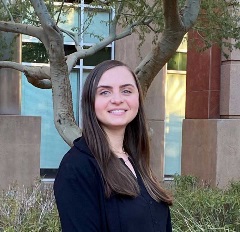On Joining the US Plastics Pact
March 9, 2022
 Why did Phoenix decide to join the US Pact?
Why did Phoenix decide to join the US Pact?
Over the past decade, the City of Phoenix has actively worked to establish programs and projects aimed to increase the diversion rate from landfills while transitioning towards a circular economy. We see the value and opportunities available in rethinking how waste is managed and finding pathways to reuse materials such as plastics. We are a member of the Ellen MacArthur Foundation and when we heard of the intent to launch a US based Plastics Pact, it was something we wanted to invest in and coordinate with our efforts in the city. Much like the City of Phoenix and our circular economy initiatives, the US Plastics Pact is solutions-oriented and focused on rethinking how plastics are designed, used, and reused. We wanted to help inform and steer the conversation around the unique needs and challenges within our state and country’s landscape when it comes to end of life materials management while also having the chance to engage and learn from other public and private sector stakeholders. The US Plastics Pact has provided tremendous opportunities to do just that.
Often cities and counties are responsible for educating members of the community and managing waste and recycling at the end of its life, but do not have control over the production of materials. Do government groups have power or a say in the US Pact? What does that look like?
Government groups definitely have a role and voice when it comes to the discussions happening within the US Pact. The US Pact has provided a variety of ways for public and private sector to engage with each other as solutions are being contemplated or proposed and allow for government groups like City of Phoenix to shed light on some of the issues we encounter when materials end up at our facilities. For example, by having this platform to connect, we get firsthand exposure to the strategies producers are considering when contemplating what alternative materials to use for their products and in turn, we can provide insights into the feasibility of capture for reuse when they end up at our transfer stations.
How can government agencies play a role in creating a circular economy?
Government agencies can play a variety of roles when attempting to create a circular economy in their region whether it be small or large scale. This could include things like establishing an education and outreach campaign to residents to highlight recycling and/or zero waste efforts, forging partnerships with local academic institutions to provide research and consulting assistance on program development, or leveraging economic development opportunities to cultivate an entrepreneurial ecosystem for circular economy businesses to thrive.
The United States has a diverse political landscape. Is there room at the table for communities who are less familiar with Extended Producer Responsibility (EPR) and who do not have measures in place?
Absolutely! Here in Phoenix, all our programs are voluntary, and we do not currently have any measures in place like EPR to help us reach our goals around waste diversion. We’ve had to be strategic and creative when building out our programs, projects and tools which has provided us with some big successes and learning opportunities. Policy solutions, such as legislation, are certainly one form of a lever, but oftentimes, the most effective and long-lasting solutions are market based and driven by organizations interested in meeting consumer expectations. The Pact provides opportunities for communities to engage at multiple levels.
What is the time commitment?
The time commitment can be as little as attending the monthly, hour and a half meeting to several hours if you are wanting to participate in some of the working groups. It’s really what you make of it.
How can I learn more about the US Pact and determine if membership is right for my organization?
Visit the US Plastics Pact website or reach out to the team via email at takeaction@usplasticspact.org
Amanda Jordan, Circular Economy Project Manager
Amanda is the Circular Economy Project Manager for the City of Phoenix where she works collaboratively across the Public Works Department and the Community and Economic Development Department to drive forward the City’s circular economy initiatives. Amanda oversees research, planning, and marketing efforts to identify and recruit innovators to the 27th Avenue Resource Innovation Campus, manages internal and external partnerships to advance circular economy efforts, and develops outreach and education components to aid local Phoenix based businesses and residents in adopting circular economy principles. Prior to joining the City of Phoenix, Amanda was the Program Coordinator for Arizona State University’s Resource Innovation and Solutions Network (RISN) Incubator—the first circular economy incubator program in the US She is an alumni of Parsons School of Design and ASU School of Sustainability.







Leave a comment